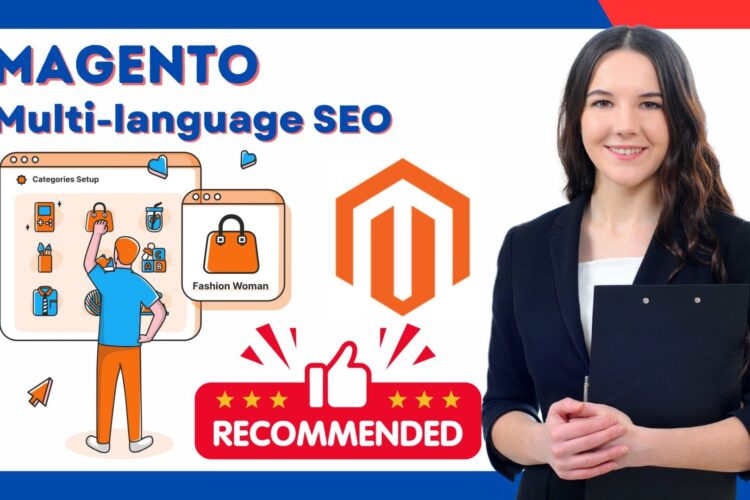
Magento is a powerful platform for e-commerce, but it has its full potential, businesses must implement robust marketing strategies. From email marketing to events and podcasts, Magento provides the tools to create impactful campaigns that drive sales and customer engagement.
Quick View
What is Magento Marketing?
Magento marketing encompasses strategies like SEO, email marketing, and content promotion customized for Magento websites. These methods make sure your e-commerce store attracts, engages, and converts visitors effectively.
Why It Matters:
- Magento websites with optimized marketing strategies report an average sales growth of 35%.
- Over 70% of Magento merchants rely on integrated email marketing for customer retention.
Why is Magento Marketing Crucial?
Magento’s market dominance is undeniable, with over 250,000 merchants using the platform. To maximize its potential, you need to implement effective marketing strategies that leverage its advanced tools.
Key Benefits of Magento Marketing:
- Improve brand visibility.
- Boost customer engagement.
- Drive sustainable sales growth.
1. Email Marketing Strategy for Magento
Email marketing is one of the most effective strategies for Magento merchants. Personalized, data-driven campaigns can significantly improve customer retention and sales.
Key Tactics:
- Abandoned Cart Recovery:
- Use automated emails to remind customers of items left in their carts.
- Include personalized discounts or product recommendations.
- Product Launch Campaigns:
- Announce new arrivals with visually appealing emails.
- Highlight unique selling points and include CTAs like “Shop Now.”
- Customer Segmentation:
- Group customers based on purchase history, preferences, and demographics.
- Send tailored messages for higher engagement.
- Loyalty Programs:
- Reward repeat customers with exclusive offers and early access to sales.
Recommended Tools:
- Klaviyo: Integrates seamlessly with Magento for advanced segmentation.
- Mailchimp: Ideal for creating engaging email templates.
Statistics:
- Personalized emails deliver 6x higher transaction rates.
- 45% of abandoned cart emails are opened, with a 21% conversion rate.
2. Content Marketing Strategy for Magento

Content marketing is important for building brand authority and improving SEO. Magento’s flexibility allows businesses to publish diverse types of content.
Key Tactics:
- Blogging:
- Write articles targeting keywords like “Magento SEO trends” and “how to market Magento to clients.”
- Address pain points and provide actionable insights for your audience.
- Product Tutorials:
- Create detailed guides to educate customers on how to use your products.
- Use images and videos for better engagement.
- Case Studies and Testimonials:
- Highlight success stories of how your products solved customer problems.
- Infographics and E-books:
- Summarize complex data into visually appealing formats.
- Offer downloadable e-books as lead magnets.
Statistics:
- Businesses using blogs see 126% more lead generation.
- 73% of customers prefer learning about products through content over advertisements.
3. Podcast Strategy for Magento
Podcasts are growing as a popular content format, allowing businesses to connect with their audience on a deeper level.
Key Tactics:
- Expert Interviews:
- Feature industry experts to discuss trends, challenges, and solutions.
- Build authority in your niche.
- Product Stories:
- Share the journey of your best-selling products.
- Highlight customer reviews and user-generated content.
- Educational Episodes:
- Explain how Magento solutions can address common e-commerce challenges.
- Offer tips on SEO, inventory management, and marketing automation.
Statistics:
- 32% of people listen to podcasts monthly.
- 54% of podcast listeners are more likely to consider brands they hear about on a podcast.
4. Events Marketing Strategy for Magento
Events provide a direct way to connect with potential customers and partners, enhancing brand visibility and engagement.
Key Tactics:
- Webinars and Online Workshops:
- Host sessions on “Maximizing Magento’s Features” or “Magento SEO Strategies.”
- Include live Q&A to engage attendees.
- Trade Shows and Expos:
- Showcase your products and Magento’s capabilities at industry events.
- Community Meetups:
- Organize meetups for Magento users to share insights and network.
Recommended Tools:
- Zoom for webinars and workshops.
- Eventbrite for event registration and promotions.
Statistics:
- 87% of marketers consider events effective for building customer relationships.
- 72% of consumers believe face-to-face interactions improve brand trust.
5. Social Media Marketing for Magento
Social media is a powerful channel for driving traffic and building brand loyalty.
Key Tactics:
- Platform-Specific Content:
- Use Instagram for product visuals and promotions.
- Leverage LinkedIn for B2B campaigns and industry insights.
- Influencer Partnerships:
- Collaborate with influencers to expand reach and credibility.
- Focus on niche influencers who align with your brand.
- User-Generated Content (UGC):
- Encourage customers to share their experiences using your products.
- Live Streaming:
- Host live product launches or Q&A sessions.
Statistics:
- Social media accounts for 31% of referral traffic to websites.
- 91% of consumers prefer brands that engage with them on social platforms.
6. Search Engine Marketing (SEM) for Magento
SEM involves paid strategies to drive traffic and visibility through search engines.
Key Tactics:
- Google Ads:
- Target high-intent keywords like “Magento content marketing services.”
- Use shopping ads to showcase products directly in search results.
- Retargeting Ads:
- Re-engage users who visited your site but didn’t convert.
- Performance Tracking:
- Monitor ROI and optimize campaigns for better results.
Statistics:
- SEM delivers a 200% ROI on average for e-commerce businesses.
7. Affiliate Marketing for Magento
Affiliate marketing involves partnering with individuals or websites to promote your products in exchange for a commission.
Key Tactics:
- Affiliate Recruitment:
- Identify influencers, bloggers, and review sites relevant to your industry.
- Performance-Based Rewards:
- Offer competitive commissions to incentivize performance.
- Tracking and Analytics:
- Use tools like Magento’s affiliate plugins to monitor traffic and sales.
Statistics:
- 16% of online sales are driven by affiliate marketing globally.
8. Influencer Marketing for Magento
Influencer marketing leverages the reach and credibility of influencers to promote your brand.
Key Tactics:
- Micro-Influencers:
- Partner with influencers with smaller but highly engaged audiences.
- Sponsored Content:
- Create authentic posts or videos showcasing your products.
- Affiliate Partnerships:
- Combine influencer campaigns with affiliate marketing for measurable results.
Statistics:
Businesses earn $5.20 on average for every $1 spent on influencer marketing.




